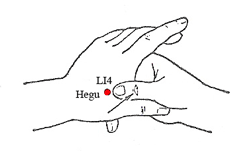Most couples dream to become an accomplished, full-functioning family. A kid is enough to make this happen. But as simple as conceiving a child may seem, with some couples it turns out to be a great challenge. The reason usually is some health problem in one of the partners which impedes conception. A common obstacle is improper functioning of the thyroid gland, known as hypothyroidism.
The thyroid gland is one of the largest glands forming the endocrine system. It is located in the front of the neck, below the larynx. The thyroid gland controls metabolism and the way the body’s reaction to other hormones. It participates in these processes by producing thyroid hormones. Is there any connection between hypothyroidism and getting pregnant?
How Does Hypothyroidism Affect Pregnancy?
The function of the thyroid gland can affect the woman’s ability to ovulate, thus making it harder to get pregnant. When the thyroid gland either produces too much thyroid hormone (hyperthyroidism) or not enough (hypothyroidism), woman’s menstrual cycle can be disrupted. This in turn affects her ovulation cycle and can make it difficult for her to get pregnant.
Hypothyroidism and getting pregnant are closely related. With hypothyroidism her thyroid gland does not produce enough T3 and T4 hormones which can affect one’s metabolism in a completely different way than over-production. Some symptoms of this condition include weakness and fatigue, depression, brittle hair or fingernails and unintentional gain of weight.
About three percent of women in the United States have hypothyroidism. If you are pregnant and the condition isn’t treated adequately, you may be at a greater risk of complications such as miscarriage, preeclampsia or preterm delivery. Some studies show that children of women with thyroid hormone deficit during pregnancy have lower IQ.
What to Do Before Getting Pregnant
If you want to have a baby but you know you have underactive thyroid gland, discuss the issue with your doctor. He/she will prescribe tests to check you thyroid levels and help the specialist assess your chances to conceive. If your levels of thyroid hormone are too low, maybe you are not ovulating properly. Then the doctor may prescribe thyroxine to compensate for the inefficiency and restore your fertility. In another scenario you may discover you have hypothyroidism as a result of trying to conceive. Your blood tests show low levels of thyroid hormone. If this is the case, your doctor will most probably prescribe a suitable treatment to compensate for the insufficiency.
What If I Am Pregnant with Hypothyroidism?
Even you have known the relationship between hypothyroidism and getting pregnant, you may have the chance of getting pregnant with hypothyroidism.
How Does Hypothyroidism Affect the Mother and the Baby?
If hypothyroidism is not properly attended to during pregnancy, it may lead to a number of risky conditions such as congestive heart failure, preeclampsia (a dangerous rise in blood pressure in later stages of pregnancy), miscarriage, premature birth or low birth weight.
Insufficient thyroid hormones can also affect fetal development, especially brain and nervous system development.
What to Do
Once you’ve conceived, you need enough quantities of thyroid hormone in order to meet all the changes pregnancy brings. Also, thyroid hormone plays a crucial role in developing the brain of the baby, so it’s very important to have sufficient levels of it.
As your pregnancy progresses, your need for thyroxine may even double. Your doctor will prescribe your thyroid hormone levels to be checked every four weeks during the first three months, then at 16 weeks and 28 weeks. You can consult your GP for these tests. But if the thyroid levels remain low, you should turn to a specialist. Do not risk any chance to have a normal and successful pregnancy.
How Is Hypothyroidism Treated During Pregnancy?
Hypothyroidism in pregnancy is treated generally in the same way as with non-pregnant women. A synthetic form of T4 is prescribed to substitute the missing hormone. The medication dose is adjusted all the time in order to maintain stable thyroid hormone levels in the blood. It is an established practice to monitor the blood levels of the thyroid stimulating hormone /TSH/ with pregnant women.
What Causes Hypothyroidism During Pregnancy?
Hypothyroidism during pregnancy is commonly caused by Hashimoto’s disease--an autoimmune disorder which is a chronic inflammation of the thyroid gland. In this condition, the thyroid is attacked by the immune system, which leads to inflammation and thus interfering with thyroid hormone production.
Hypothyroidism during pregnancy can also be caused by existing hypothyroidism or removal of the thyroid as a hyperthyroidism treatment.
How to Avoid the Consequences of Hypothyroidism
Specialists have made a list of recommendations aiming to prevent the consequences of hypothyroidism in pregnancy.
- Women diagnosed with hypothyroidism planning pregnancy should be screened for that disease.
- Women with enlarged thyroid gland, high levels of thyroid antibodies in the blood, family history of thyroid problems and symptoms of hypothyroidism should be tested for this disease.
- Women who are at the border (with thyroid hormone levels in the low range, close to those typical for hypothyroidism) and who also have positive antibodies (which may mean an autoimmune thyroid disorder) should be prescribed a therapy with low dose thyroid hormone at the start of pregnancy.
- There is evidence that antibodies may also have influence pregnancy and trigger hypothyroidism. It is recommended that women with high antibody levels are given selenium supplementation at the time prior to conception. This should be consulted with your doctor.
- Women who are on thyroid hormone replacement therapy before pregnancy should be tested to make sure that their levels are within range.
- Dosing should be adjusted constantly during pregnancy so close monitoring is required.
- The amount of supplement thyroid hormone given to the patient during and after pregnancy must be closely monitored via the blood thyroid stimulating hormone or TSH. Keep in mind that laboratory standards for TSH vary.






